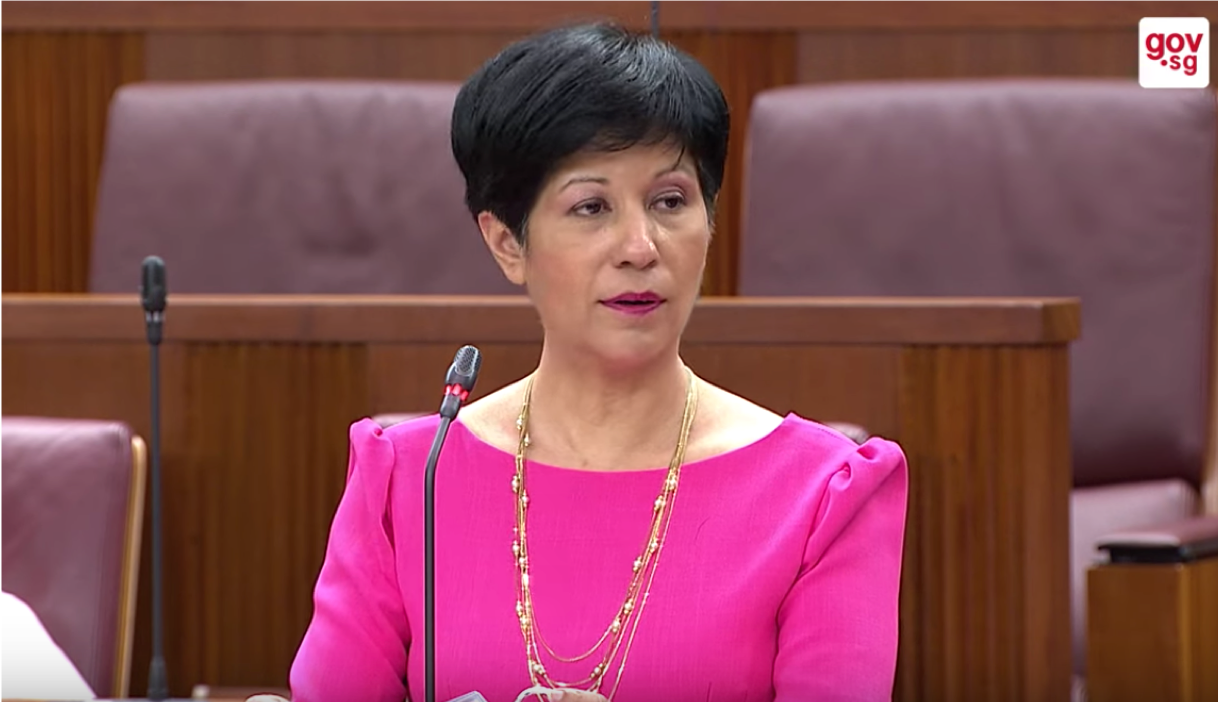The Ministry of Education is changing. But they will do so at their own pace.
Newly-minted Second Minister for Education Indranee Rajah gave a speech in Parliament on July 11, in response to the Parliamentary motion "Education For Our Future".
The motion, raised by NMP Mahdev Mohan along with four others, recognised that a love for learning was important and called on the House to "partner with the people" to ensure accessible, inclusive and lifelong education.
Indranee set out six broad themes in her speech:
- Ensuring that children have the best possible chance to succeed.
- Children should enjoy their time in school.
- Lifelong learning.
- Inequality, concern that the less-fortunate will be left behind.
- Inclusivity and integration of special-needs children.
- Government needs to work with outside stakeholders to shape education policy.
It was a pretty long speech, but in it, she sheds some light on the Ministry's response to the public debate on our education system.
Prep for success
Despite the changing role of the education system, its main responsibility remains to equip children with skills and knowledge needed for good jobs.
Indranee said that different concerns about the system, such as stress and competitiveness, reflect the priority of making sure a child has the best chance possible of success.
However, success does not always require academic brilliance.
[related_story]
With opportunities in new fields like data analytics and artificial intelligence, MOE recognises that the system has to prepare today's children for an unpredictable future.
To that end, the Ministry has introduced multiple programmes to cater to students with different strengths. These include, but are not limited to:
- Setting up the Singapore Sports School and School of the Arts for those so inclined.
- Applied Learning Programmes in all secondary schools to give students hands-on industry experience.
- Replacing the old streaming system with differentiated learning, because children learn at different paces.
- Polytechnic courses for new industries, like games art and design.
These all combine to create "multiple pathways to success". Said Indranee:
"There are many different ways to reach an ultimate goal."
Joy of learning
But a great school won't help if kids are sick of going to school.
Indranee said MOE agreed that nurturing a love of learning was better than creating a culture of over-drilling and over-testing.
Starting early from preschool, the Nurturing Early Learners curriculum and the Early Childhood Development Agency both recognise the importance of "purposeful play" and physical development.
And the PSLE system will by 2021 be changed, with top PSLE scores no longer revealed, and schools no longer banded by academic results. Wider scoring bands will also reduce differentiation and comparison between students.
In response to Nee Soon MP Louis Ng's call for a review of performance-based rankings for teachers, worrying that teachers might "teach to the test", Indranee said they are assessed holistically, and on a wide range of criteria, not just the academic performance of their students.
Uplifting the bottom
But the education system has also been tasked with another role — reducing inequality.
Indranee defended the MOE's track record in helping students from disadvantaged backgrounds to succeed academically.
She cited world PISA scores, Trends in International Mathematics and Science Study (TIMSS), and the Progress in International Reading Literacy Study (PIRLS).
Singapore students topped the world in the first two studies, and came in second for PIRLS.
But she notes, more significantly, the fact that Singapore has one of the smallest proportions of low performers in these global rankings.
Indranee explains this means Singapore schools are helping students from all backgrounds to do well, and they perform better than kids in other countries. Still, MOE remains concerned about inequality:
"We too are concerned about the widening income gap even as the middle class are uplifted and do better over time."
MOE, she says, believes the best way to address this is to "uplift" those at the lower end.
Inclusivity and partnership
Indranee did not speak at length on inclusivity, as it was separately addressed by Senior Parliamentary Secretary Faishal Ibrahim.
However, she did mention that MOE remains committed to providing the best possible support for those with special needs.
To achieve their goals, MOE will work together with everyone — parents, teachers and kids. Indranee emphasised that getting the education system right is about "striking a balance".
And she believes that the new options that MOE has introduced for each student can help to alleviate the stress of believing that there is only one path to success.
But in terms of new, major changes, there are slim pickings.
This was made clear when Indranee echoed NMP Randolph Tan, who said:
"The last thing we want is for everyone to discard the foundations currently offered by our education system."
You can watch part of her speech below:
&
Related article:
Top image from Gov.SG on YouTube.
If you like what you read, follow us on Facebook, Instagram, Twitter and Telegram to get the latest updates.
